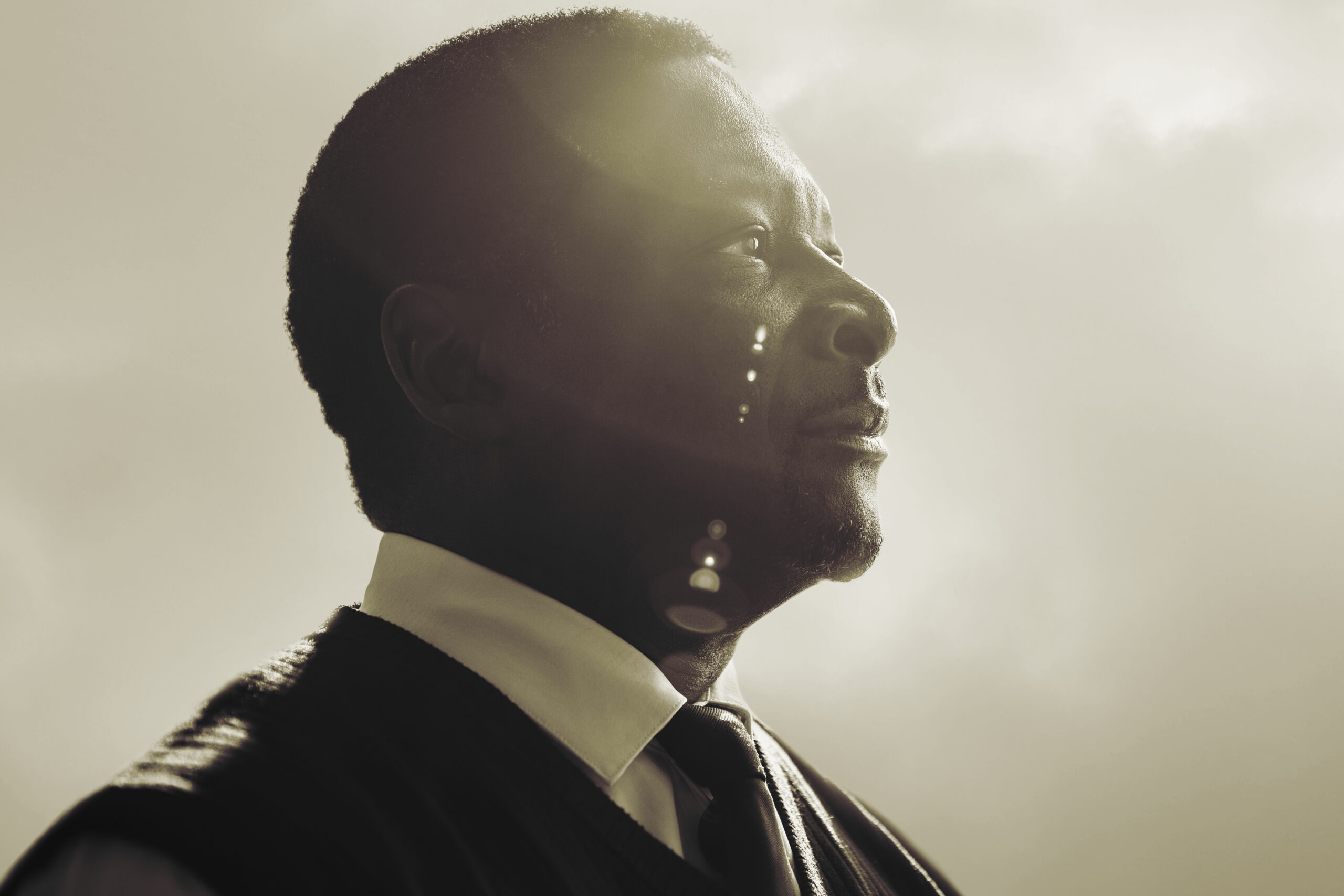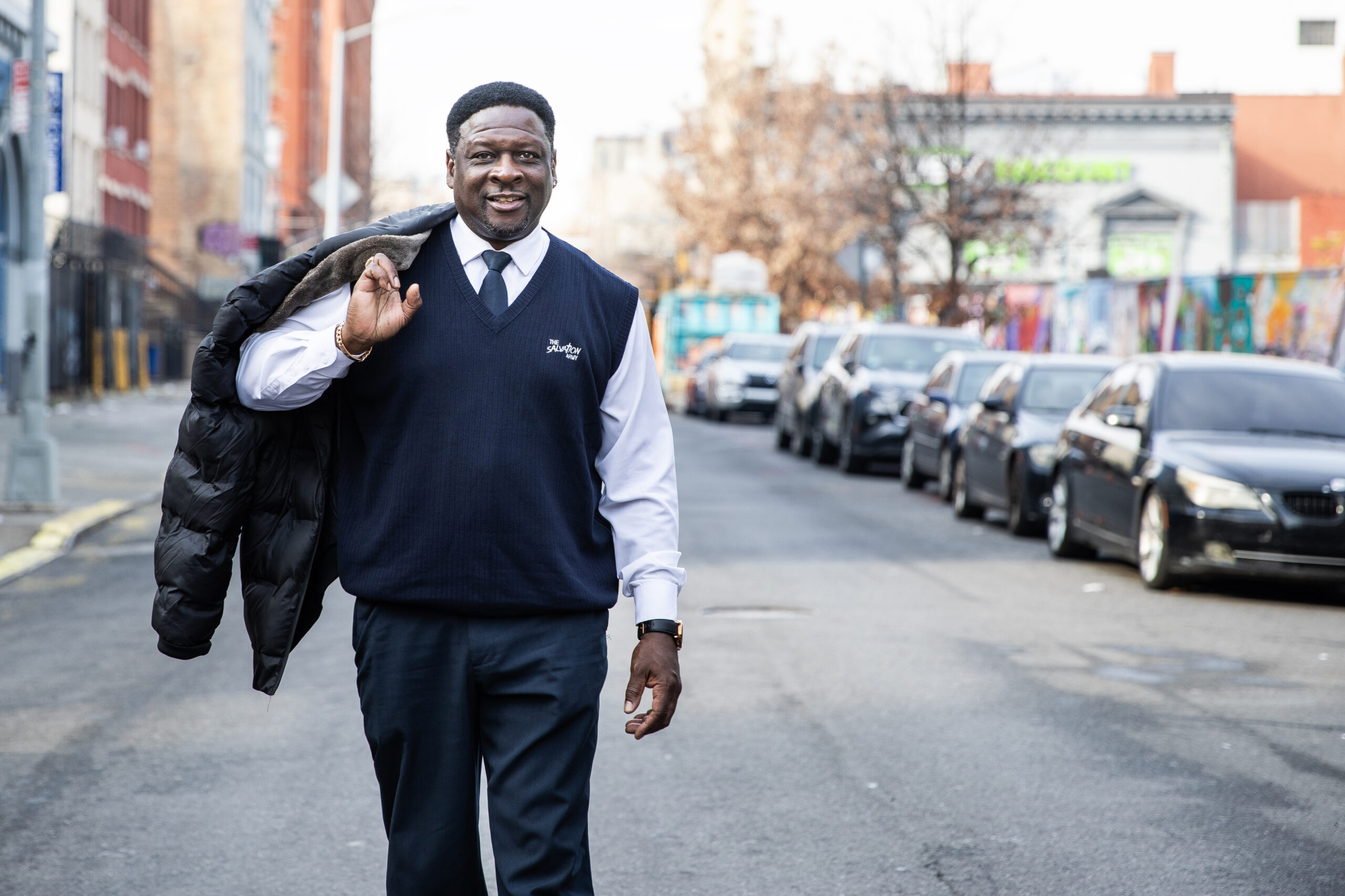The Birdman of Rikers Island
by Robert Mitchell

Darnell Nixon received grace from both a judge and Christ on his way to being the man of God he is today. He spent his time in prison finding God. Now 61, he is the founder and leader of the basketball program at the Manhattan Citadel, a Salvation Army corps in Harlem, N.Y.
“ Look at the birds of the air; they do not sow or reap or store away in barns, and yet your heavenly Father feeds them. Are you not much more valuable than they?”
—MATTHEW 6:26
When Darnell Nixon looked out the window of his jail cell on Rikers Island in 2009, he knew he had hit rock bottom. He grew up nearby in Hollis, Queens, in New York City and had been friends with the hip-hop group Run-DMC before his life spiraled out of control.
On Darnell’s mind that day was how he faced possible life in prison—under New York’s “three strikes” law—because of two prior felonies. But during that split second, he became “fixated” on a bird in the prison yard. He continued to watch as it flew over the wall to freedom. That image profoundly changed Darnell’s life.
“I just started crying,” Darnell recalls. “I remembered reading something in the Bible talking about God taking care of the birds and everything and that just came to me right there in that jail cell. The bird went over that fence, and he was free, and I was like, ‘I want to be like the birds and the Bible says God takes care of the birds.’ Nobody feeds the majority of birds, but they eat. Who feeds them? That all comes to mind. I think when I really, really got it was that incident with the bird.
“I always go back to that moment because after that, my whole life changed. It’s like I was still in jail, but I wasn’t really in jail. I was free. That’s what it felt like.”
Even Darnell’s fellow inmates noticed a change when he didn’t show up to play cards and checkers.
“I grabbed a Bible and I just started reading it front to back. I took my time. I wouldn’t even go to recreation or to watch movies with the other guys. I couldn’t wait to get back to my cell to read my Bible. I was just in my cell reading the Bible all the time.
“I got down on my knees at one point and I said, ‘God, I’ll dedicate my life to you if you get me out.’ That was my awakening. I studied the Bible and prayed every night.”
A miracle release
Darnell had been going back and forth to court for eight months on his latest charge of shoplifting from a department store in 2008. The judge initially proposed a sentence of eight years in prison for a plea deal, but every time he went to court, the offer increased by two years.
“I thought I was just finished,” Darnell recalls.
Then, the last time he went to court, the unthinkable happened. The judge offered to let Darnell go that very day if he agreed to probation and to attend an in-patient program.
“ I was always searching for something and when I let Christ in, He filled me. I felt whole.”
“I walked out the door a free man,” he says. “I couldn’t believe it. It was like a miracle or something. I had made foxhole prayers before many times, and the Lord saw fit to get me out and I would just go right back. This was different. This time I knew it would be different because I had God.”
Darnell had no worldly possessions when he walked out of the courthouse. His family offered to help, but he wanted to turn things around on his own and he went to a homeless shelter instead. While on probation, Darnell soon learned about The Salvation Army’s Adult Rehabilitation Center (ARC) program in Manhattan and decided to give it a try.
“God knew what I needed,” he says. “He knew the ARC was for me. It was a little different for me; I didn’t have a drug or alcohol problem. I knew I already had an awakening. I was diligent about finishing the program and doing the right thing.”
During his six-month stay, Darnell developed a work ethic and drew closer to God through chapel services, classes, and Bible studies.
He also met Ramesh Sukhdeo, who was going through the program too. The two formed a bond. Today, Sukhdeo is an envoy leading The Salvation Army’s New York Temple, but at the time he was attending the Manhattan Citadel. He introduced Darnell to that corps, where he found a home.
“I would pray with him and encourage him,” Sukhdeo recalls. “When I left the ARC, I moved to Harlem, and he lived in the shelter next door. We went to Manhattan Citadel together.”
Music for the Lord
Darnell, 61, now plays drums in the praise band, helps with the feeding program, and serves on the church council, but what really brings him joy is being a founder of and an active leader in the basketball program at the Manhattan Citadel, where gang members from the nearby projects gather for hoops.
“They come together to quash their beefs on the basketball floor,” Darnell says. “To this day in that neighborhood, I walk down the street, and everyone knows me.”
Darnell sometimes delivers the devotional before games and invites players, coaches, and others to church. He offers biblical encouragement to the families, especially the single mothers of some of the players.
“I always talk about the kids and wanting the best for them and that opens people up,” he says. “They may be Muslim or Jewish or Christian, but I talk about the Lord and His grace and how we need to mentor the kids, and you should see how they open up when I mention that because a lot of them have kids.”
Darnell often uses illustrations from his own childhood when he shares his life’s mistakes before coming to Christ. He grew up in an intact family and had three sisters, all of whom went to church with their mother, Clara Nixon. Darnell got an early grounding in the gospel from his mother, attending church and singing in the choir at a Baptist congregation.
“She instilled godliness,” Darnell says of his mother. “That was a good thing because I believe now that if it wasn’t for her, I probably wouldn’t have anything to do with the Church. Even though I was young and didn’t appreciate it back then, she implanted those values in us.”
Darnell didn’t really pick up the drums until he was around 15. That’s when he became friends with Joseph “Run” Simmons, Darryl “D.M.C.” McDaniels, and Jason “Jam Master Jay” Mizell—the guys who’d go on to form Run-DMC, often described as the most influential hip-hop group of the 1980s.
“That’s when I got in the music aspect of things and it became a part of me,” he says. “We were all from the same neighborhood.”

Darnell walks the streets of Harlem a free man. “God gave me a second chance,” he says.
From regrets to redemption
Darnell gravitated to other musicians in the neighborhood as well and found he was a “natural” percussionist, but he also began hanging out with bad influences.
“I just started hanging out in the streets and getting arrested here and there,” he says. “I was hanging out with the wrong crowd and wrong kind of people with guns and everything. I did what they did.”
His first felony arrest and five-year prison sentence came from robbing a gas station in the 1980s. He was caught selling drugs to notch his second felony and did time behind bars.
“I regret that time in my life,” Darnell says. “I feel like I wasted so much time that I could have used for God. He came into my life and filled me up. He saved my soul. I guess I could say I was empty. I was always searching for something and when I let Christ in, He filled me. I felt whole. I felt like there’s somebody I could give my burdens up to. Someone I could always talk to, who would be there looking out for me regardless of what situation I’m in.”
While he would rather forget that time in his life, today Darnell enjoys working for The Salvation Army’s International Social Justice Commission in Manhattan. He periodically runs into the remaining members of Run-DMC, but he is fully committed to Christ these days.
“Christ is my rock,” he says. “He’s my foundation. Life is like a spinning top, but He keeps me grounded. He doesn’t let me fall.”
Darnell says that comes from the daily disciplines of prayer, meditation, and fellowship.
“I pray a lot,” he says. “Sometimes, I just go to be alone and pray during the day and stay in constant contact with God.”
Sukhdeo is proud to see the man of God Darnell has become.
“It brings tears of joy to my heart,” Sukhdeo says. “He’s a great guy. In this spiritual walk, he has grown so much in the Lord. He’s very faithful. He loves music and he loves the Lord. We are from different mothers, but we are brothers.”
A testimony to share
His love of music has heavily influenced his spiritual life, says Darnell. Over the years, he has been a part of several “top-notch” bands. He’s played rock, jazz, reggae, and the blues, but gospel music touches his soul unlike any other genre.
“The more I played it, the more my soul felt healed,” Darnell says.
For a few years before the COVID‑19 pandemic, he felt a special connection while performing with the praise band at the Elmendorf Reformed Church, which dates back to 1660 and is the oldest church in Harlem.
Darnell says that his unselfish service today is all due to promising God he would devote his life to Him.
“God gave me a second chance,” Darnell says. “I’ve truly believed that from the time I saw that bird. Sometimes they say it only takes one second or so to change a person’s life. That was that second for me.”

